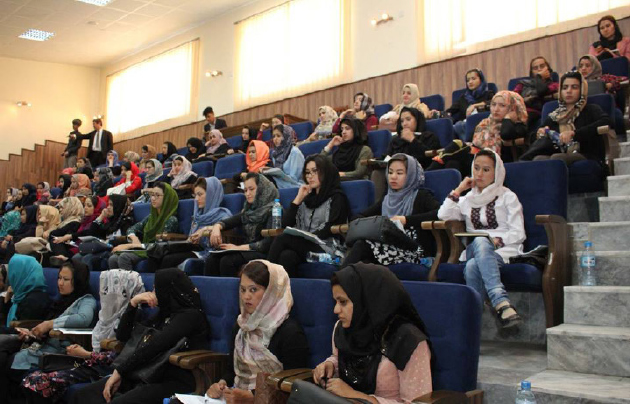AIHRC said their findings show that although efforts are being made to end the problem, the new law needs to be implemented fully.
Officials from the Afghanistan Independent Human Rights Commission (AIHRC) said on Sunday that over 85 percent of Afghan women and children face some sort of harassment.
On Sunday officials from nearly 20 government and non-government organizations came together to report back to parliament’s human rights and women’s affairs commission on their efforts to combat harassment of women and children.
According to AIHRC, a large percentage of women are forced to give up work because of harassment, while others accept illegal offers from men in order to keep their jobs.
Qadria Yazdan Parast, an AIHRC commissioner, said they recently interviewed over 1,500 women and girls, of whom over 1,300 have said women face harassment.
“Our investigation shows that over 15 types of harassment exist in this society and are carried out against women and children,” said Yazdan Parast.
The findings of their survey have not yet been released, but AIHRC said they would do so in the next few days.
In the meantime, officials from parliament’s human rights and women’s affairs commission said the responsible departments and organizations have failed to implement the new women and children anti-harassment law.
The commission’s head Fawzia Kofi said at the meeting that a large percentage of Afghan women and children have to deal with harassment and are often forced to accept “illegal” offers.
“Today when women go to (work at) government departments, many are made illegal offers which leave them two choices; to accept the offer or leave their job,” Kofi said.
Ministry of Public Health (MoPH) officials meanwhile said at the meeting that since 2013 they have addressed over 23,000 cases of violence against women and children.
“Since 2013 up to now around 23,000 cases have been registered and they (the women and children) have benefited from health services,” Ahmad Jan Naeem, Deputy Minister of Public Health said.
Also at the meeting was Deputy Minister of Hajj and Religious Affairs Abdul Hakim Munib who said: “We have published a few books on women’s rights and their role in the family.”
Although a number of government and non-government departments said they have recorded achievements in terms ofaddressing the problem of harassment, officials from AIHRC and parliament’s human rights and women’s affairs commission said these efforts are not enough.
According to them, the departments working to end harassment against women and children have failed to end the problem and that the anti-harassment law needs to be implemented fully.
The law was approved by parliament in 2017 and was signed off by President Ashraf Ghani in April 2018.
The law has three chapters and 29 articles and aims to end harassment against women and children in the country.
Under the law, jail terms and cash fines will be imposed on anyone found guilty of breaking this law.
Human rights activists said they hope government will implement the law.
“Almost all families are affected by harassment. We hope that a mechanism is established,” said Fawzia Kofi. (Tolo news)
Home » Afghanistan » 85% of Afghan Women, Children Harassed: AIHRC
85% of Afghan Women, Children Harassed: AIHRC

